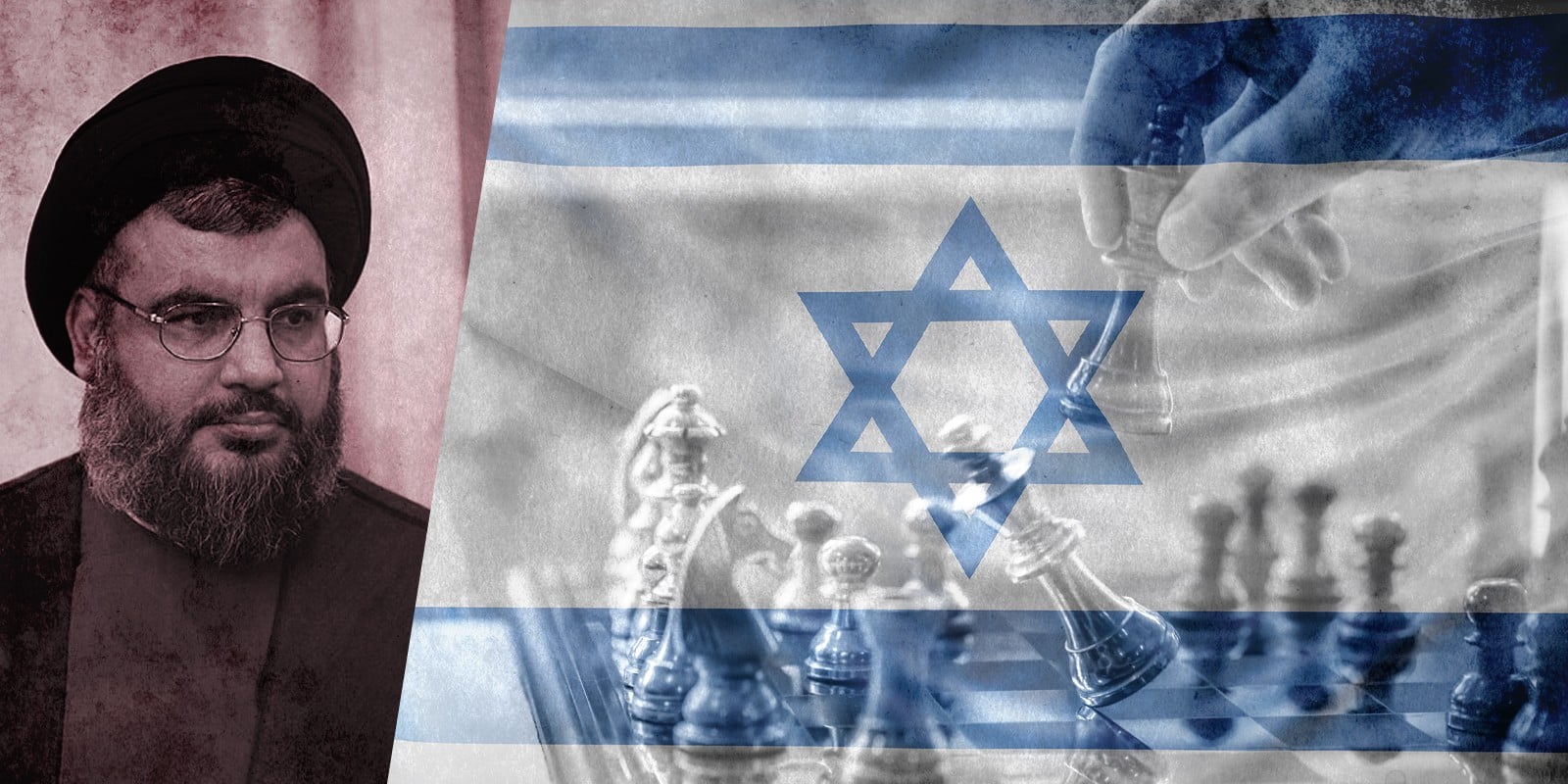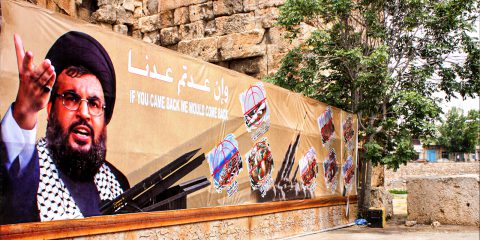A limited Israeli military operation in Lebanon would strengthen Israeli deterrence against Hezbollah. It also would deepen Iran’s sense of defeat and demonstrate Israel’s determination to check Iran’s malign activity.
The recent incident on the Israeli-Lebanon border in which the IDF successfully interdicted a Hezbollah infiltration attempt, testifies to the IDF’s excellent defensive tactical capabilities, and its intelligence against Hezbollah. It is likely that the exposure of the Hezbollah force, and the IDF’s rapid and sharp response, surprised and embarrassed the Lebanese Shiite “terrorist army.”
Despite the success at the tactical level, Israel appears to have strategically erred in managing this event. First, Israel should not have allowed Hezbollah’s operatives to escape unharmed. Second, Israel’s failure to respond significantly to the attempted attack undermines Israeli deterrence. Israel preferred to contain the incident after it thwarted the intrusion, and expressed its concerns publicly about another possible attack from Hezbollah. Israel demonstrated hesitation and weakness.
Until the last event, an equation was created between Hezbollah and Israel on which there was an informal agreement between the two sides. When Israel acts in the context of its “Campaign Between Wars” (CBW) against Hezbollah and against Iran’s targets in Syria (whether to prevent the transfer of advanced weapons to Hezbollah in Lebanon, or against Hezbollah’s establishment in Syria, and to hit Iran’s military entrenchment in Syria) – Israel maintains plausible deniability, and Hezbollah does not respond. On the other hand, when Israel openly thwarts terrorist acts from Syrian territory by Hezbollah cells and the IRGC Quds Force, has Hezbollah chosen to respond several times.
The situation in Lebanon is different. Hezbollah responds to every action taken by Israel in Lebanon, and therefore Israel refrains from operating in Lebanon, except for a very small number of rare covert operations in the context of the CBW. An exception to this rule came in August 2019, when an Israeli drone attacked Iranian precision missile-manufacturing equipment in the Dahieh district of Beirut. Israel carried out the attack to thwart Hezbollah attempts to improve the accuracy of its missiles. Until that attack, Israel had sought to exert pressure on Hezbollah and the Lebanese government to give up this project, without Israel taking military action against it. It is likely that if Hezbollah nevertheless continues the project to improve missile accuracy, the Beirut-Jerusalem equation increasingly will erode, to the point of cancellation; a process that probably will lead to increased border incidents and possibly to a war between Israel and Hezbollah.
Following the Israeli drone attack in Beirut, Hezbollah Secretary General Hassan Nasrallah declared a change in the equation and claimed that his organization would begin responding from Lebanon to any Israeli attack on Hezbollah operatives in Syria. (Parallel to the Israeli attack in Lebanon, Israel also killed Hezbollah operatives in Syria). Consequently, the recent incident on the Israel-Lebanon border can be seen as Hezbollah’s attempt to change the rules of the game while further eroding Israeli deterrence.
Prior to the border incident, Israel signaled to Hezbollah and Lebanon that it was ready for escalation by issuing aggressive official statements, reinforcing forces on the ground, and placing tanks, weapons and defense systems near the border. Nevertheless, Israel deliberately chose to contain the incident and not kill the intruders. This, despite the severe advance warnings and even though Hezbollah is at an all-time low point in Lebanese politics.
The Israeli preparations and threats did not impress Hezbollah, which indicates that the organization is not truly deterred by Israel. (Israel did kill one Hezbollah operative in Syria but refrained from taking credit for this.) Again, Hezbollah’s activities should be seen as an attempt to change the rules of the game by replicating the existing equation in Lebanon in other arenas. If Hezbollah succeeds in forcing Israel into a new equation – i.e., in curtailing its freedom of action in the context of the CBW against Hezbollah in Syria, Iraq and elsewhere – Israel’s overall security posture will be greatly harmed.
In a situation where Hezbollah feels less deterred, Israel must push back and re-assert its freedom of action against the organization within the CBW. Israel can act at various levels in Lebanon. One possibility is a limited military operation lasting between one and a few days of battle in which the IDF attacks Hezbollah targets in southern Lebanon in a limited and targeted manner from the air. This would be like “Operation House of Cards” carried out by Israel in May 2018 following Iran’s attempt to launch missiles toward Israel from Syria. The Israel Air Force directly attacked more than 50 IRGC Qods Force targets throughout Syria, and openly took responsibility for the attacks.
The IDF could focus on targets that can be classified as of “low importance” to Hezbollah (such as outposts near the border, ammunition and weapons depots, bunkers and command and control headquarters), to prevent a significant Hezbollah response. But the lesson would be learned: ‘Don’t you dare try to change the current deterrence equation.’
Hezbollah is unlikely to escalate further, given its dire economic, social and military situation, and Iran’s desire to keep the organization as a threat against Western and Israeli intervention in Iran’s military nuclear program.
Israel, too, clearly seeks to avoid war with Hezbollah. But the costs of embarking on a limited military operation are far lower than the costs of allowing Hezbollah to dictate a new balance of terror in Syria and Lebanon.
A limited and targeted Israeli military operation against Hezbollah will surprise the organization’s patron, Iran. Tehran is dealing with severe economic sanctions imposed by the US; internal social struggles over economics and welfare; a diminishing of its sway in Iraq under the Al-Kadhimi administration; difficulties in military entrenchment in Syria; security breaches and physical damage to its nuclear facilities and vital infrastructure; and the coronavirus crisis.
Therefore, Iran is not currently interested in a war between Hezbollah and Israel. Tehran prefers strategic patience, waiting for a change of administration in the US – which may seek a renewed (and convenient for Iran) nuclear accord.
A limited Israeli military operation in Lebanon would strengthen Israeli deterrence against Hezbollah. It also would deepen Iran’s sense of defeat and demonstrate Israel’s determination to check Iran’s malign activity.
An earlier version of this paper was published in The Jerusalem Post 09.08.2020
JISS Policy Papers are published through the generosity of the Greg Rosshandler Family.
Photos: Bigstock/Freepik/Satyar Emami









 - בניית אתרים
- בניית אתרים